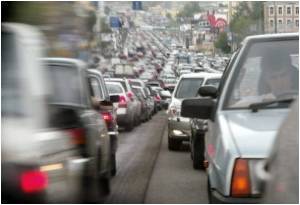Research reveals that the annual number of car crash deaths in England and Wales has plunged by 41% over the past 50 years, despite the increase in drivers on the road.

Over the entire 50 years, 102,196 people died as a direct result of a road traffic accident. In 1960, car crashes caused 1647 deaths, but by 2009 the annual death toll had fallen to 964 - a drop of 41%. This is despite the annual increase in car ownership across the UK of around 3%. Road traffic deaths fell even more sharply among the under 14s, decreasing by 70% from 66 to 20 over this time frame, although they rose among those aged 75 and over. There were 68 road deaths in 75 and older age group in 1960, and 109 in 2009. But this was lower than the peak of 231 in 1990, and should be taken in the context of the rising proportion of older people in the populations of both countries, say the authors. But for any given year, more men died in car crashes than women, with the total numbers of 1182 and 465, respectively, in 1960, falling to 689 and 275, respectively, by 2009. Furthermore, women were older than men when they died in any given year. Between 1960-69 women were 68% more likely to have already gone past the annual median age of death for all deaths when they died. This had risen to 71% in 2000-2009.
Similarly, those from more privileged backgrounds were also more likely to be older, and to have already gone past the annual median age of death for all deaths when they died than those from less privileged backgrounds. The authors point out that the introduction of compulsory seat belts, drink driving curbs, child safety seats, and speed cameras, as well as the development of specialist trauma centres, will all have helped to drive down road traffic fatalities. "However, it is possible that while these interventions have resulted in a reduction in the absolute number of deaths from [road traffic accidents] in England and Wales, they have not modified the relative differential in age of death between sexes or socioeconomic groups in those who die after [a car crash]," they conclude.
Source-Eurekalert












